Advanced EMG testing that pinpoints exactly what’s causing your numbness, tingling, or muscle weakness.
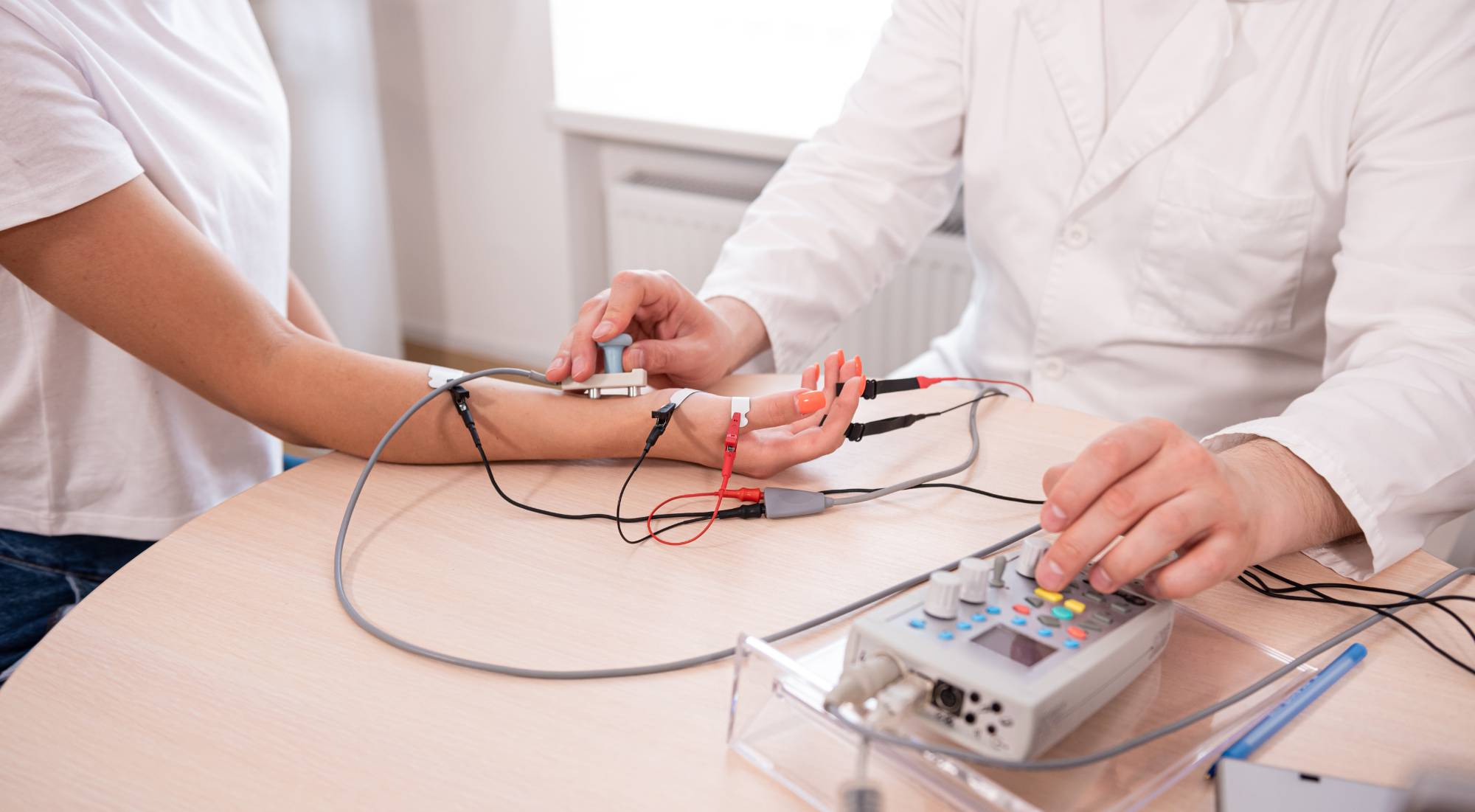
Reviews
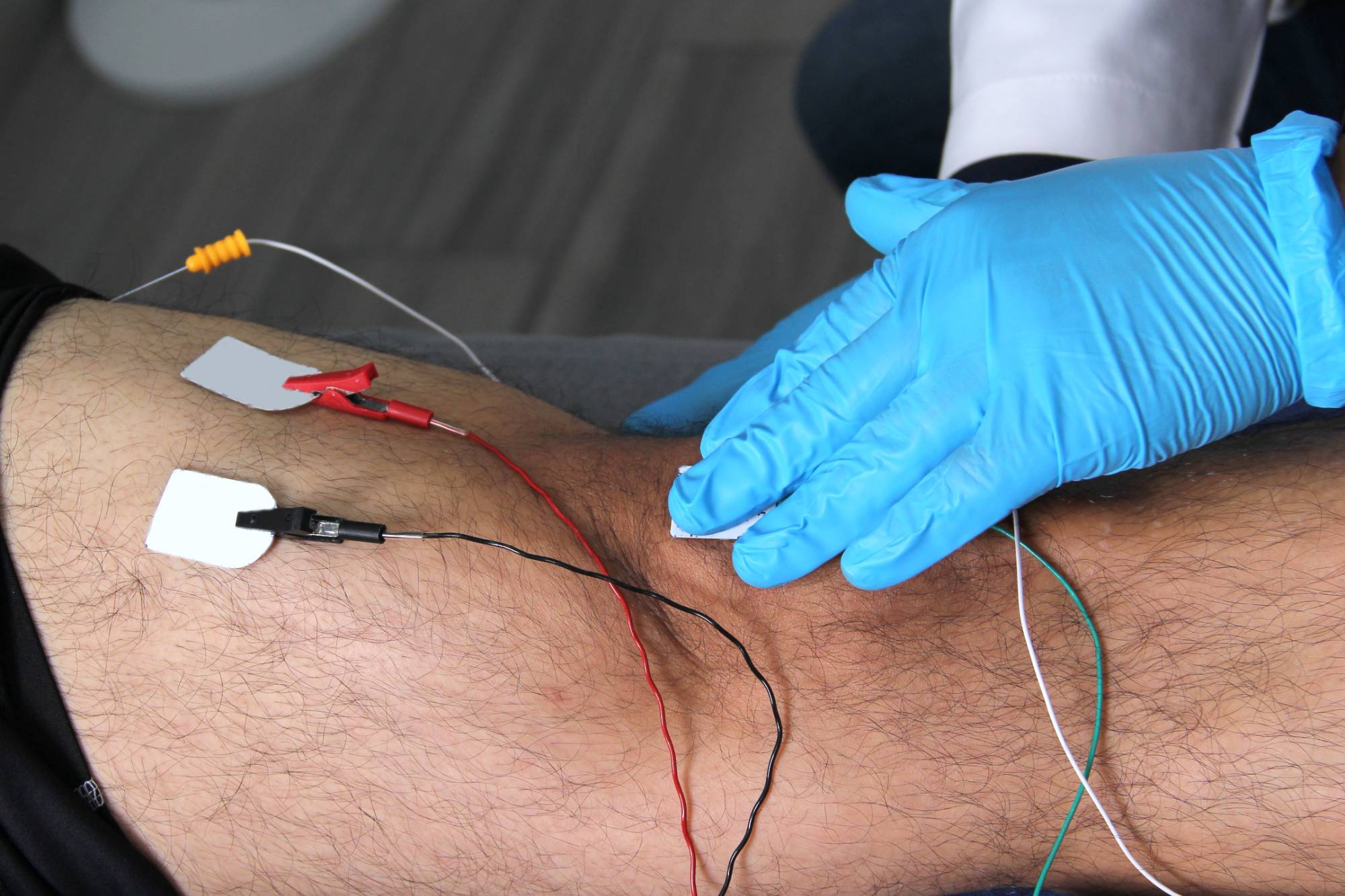
You’ve been dealing with nerve pain, muscle weakness, or that frustrating tingling sensation for too long. Maybe it’s affecting your work, your sleep, or just your ability to get through the day without wondering what’s wrong.
EMG testing gives you the clarity you need. This diagnostic procedure measures the electrical activity in your muscles and nerves, revealing exactly where the problem lies. Whether it’s carpal tunnel syndrome, a pinched nerve, or something else entirely, you’ll finally have concrete answers.
Once you know what you’re dealing with, you can move forward with a treatment plan that actually addresses the root cause. No more guessing. No more wondering if the pain will get worse. Just clear information that leads to real solutions.
NY Spine Medicine brings years of specialized experience in electromyography and nerve conduction studies to the Medley community. We understand that nerve-related symptoms can be complex and frustrating, which is why we focus on thorough, accurate diagnostics.
We’ve built our reputation on clear communication and effective results. You won’t get rushed through your appointment or left wondering what your test results mean. Every patient receives detailed explanations and a clear path forward.
Located conveniently in Medley, we serve patients throughout South Florida who need reliable answers about their nerve and muscle conditions.
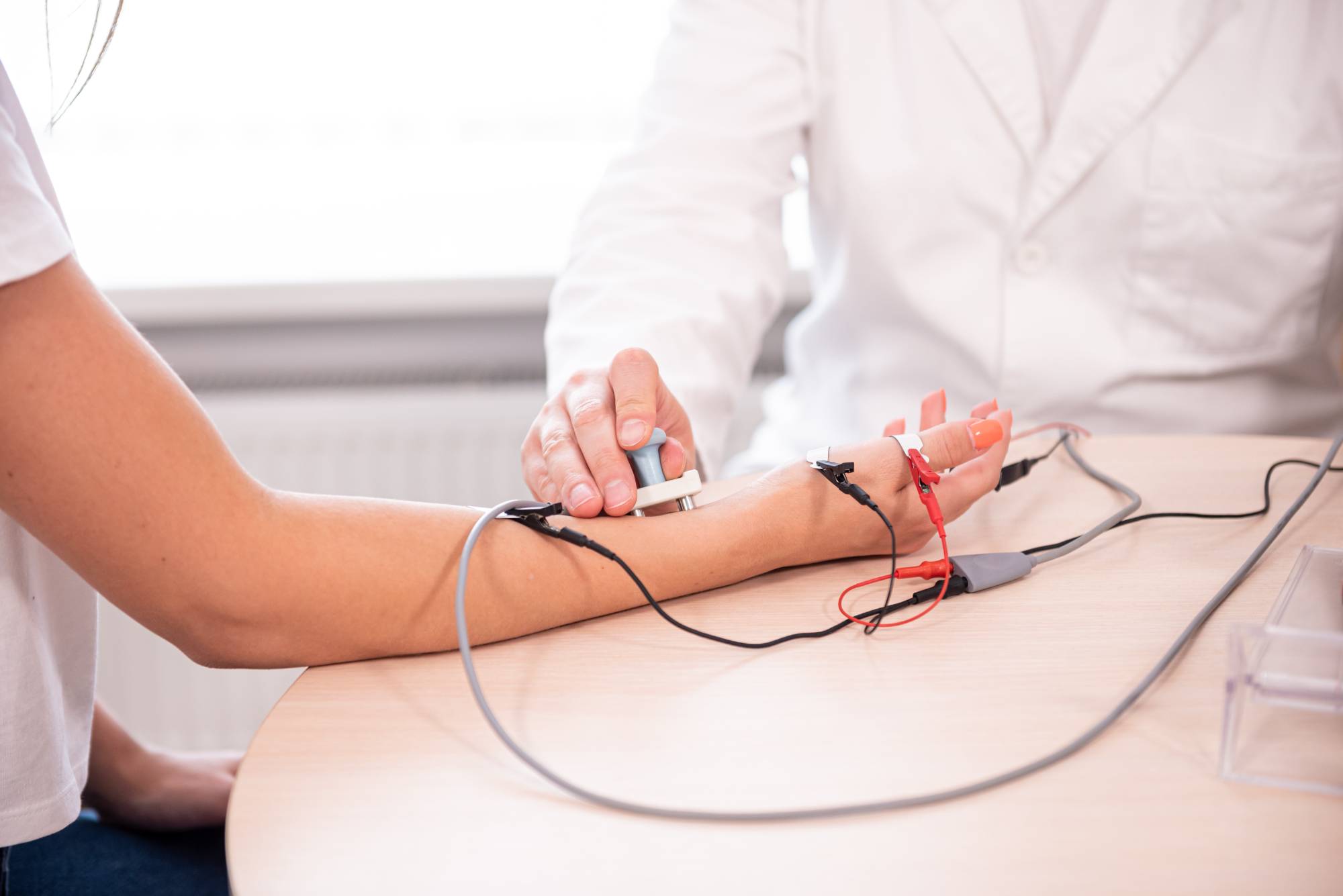
Your EMG testing appointment typically takes 30 to 60 minutes, depending on which nerves and muscles need evaluation. The process involves two main components: nerve conduction studies and needle electromyography.
During the nerve conduction study, small electrodes are placed on your skin to measure how well electrical signals travel through your nerves. You’ll feel brief, mild electrical pulses, but nothing painful. This part reveals whether your nerves are functioning properly and how quickly they transmit signals.
The needle EMG portion involves inserting very thin needles into specific muscles to measure their electrical activity. While this sounds uncomfortable, most patients find it much more tolerable than expected. We’ll explain each step and can answer questions throughout the procedure.
After testing, you’ll receive your results immediately. We’ll explain what the findings mean for your specific situation and discuss treatment options that make sense for your condition.
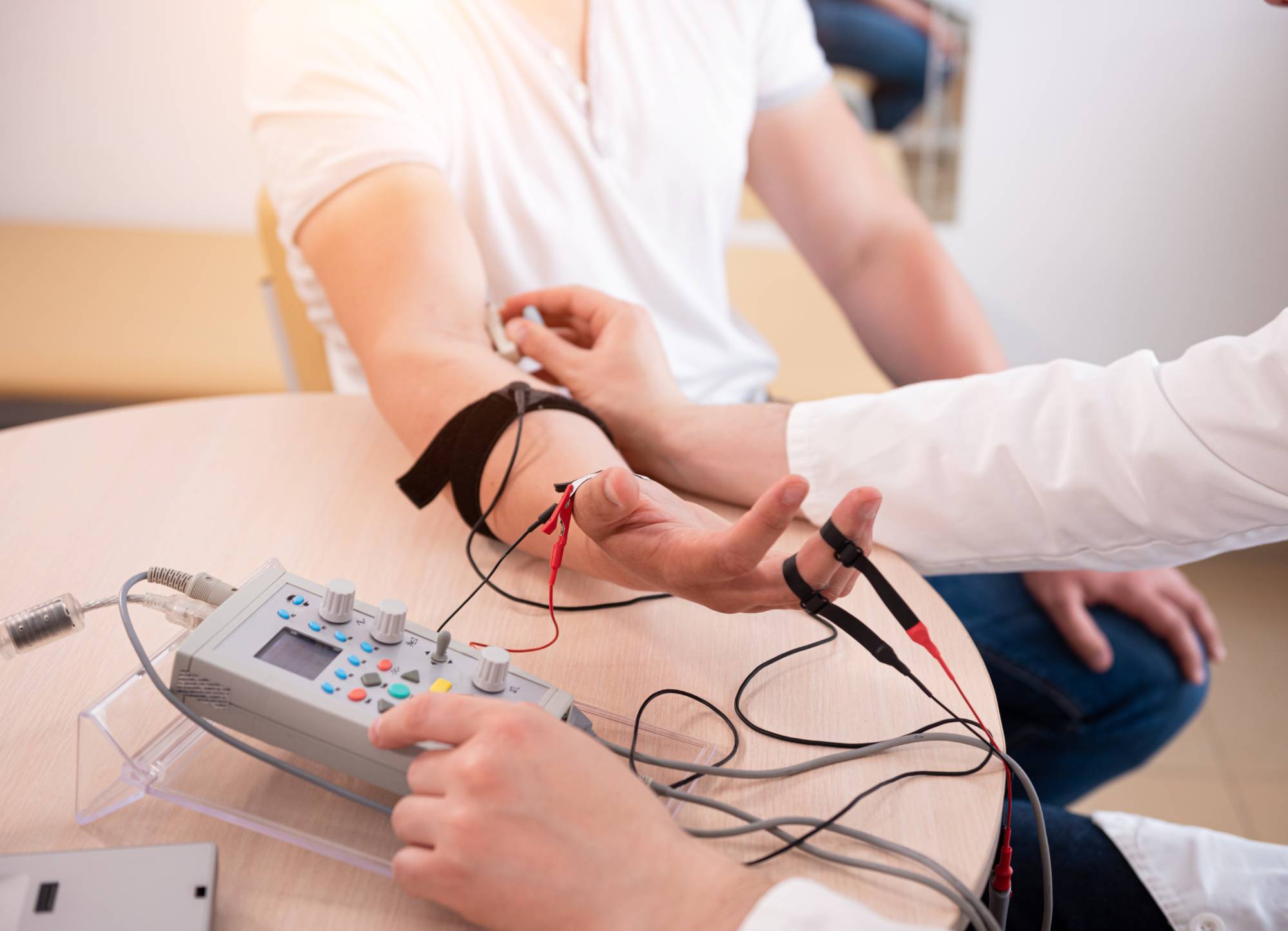
Ready to get started?
Your EMG testing includes both electromyography and nerve conduction studies, providing a complete picture of your neuromuscular function. This comprehensive approach helps identify conditions like carpal tunnel syndrome, ulnar neuropathy, radiculopathy, and various muscle disorders.
The testing evaluates nerve transmission speed, muscle response patterns, and identifies areas of nerve damage or compression. You’ll receive detailed results that clearly show which nerves or muscles are affected and to what degree.
Many patients in the Medley area come for EMG testing when they’re experiencing symptoms like persistent numbness in their hands, shooting pain down their legs, or unexplained muscle weakness. The test helps distinguish between different types of nerve problems and guides appropriate treatment decisions.
Insurance coverage is typically available for medically necessary EMG testing, and our staff can verify your benefits before your appointment to avoid surprises.
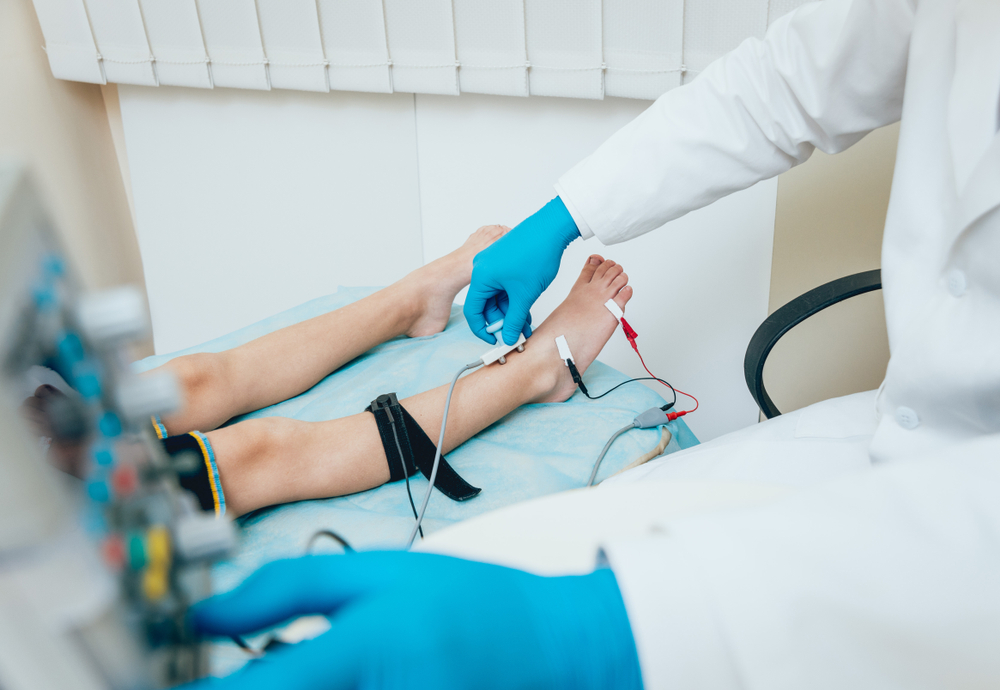
New York:
Florida:
Support